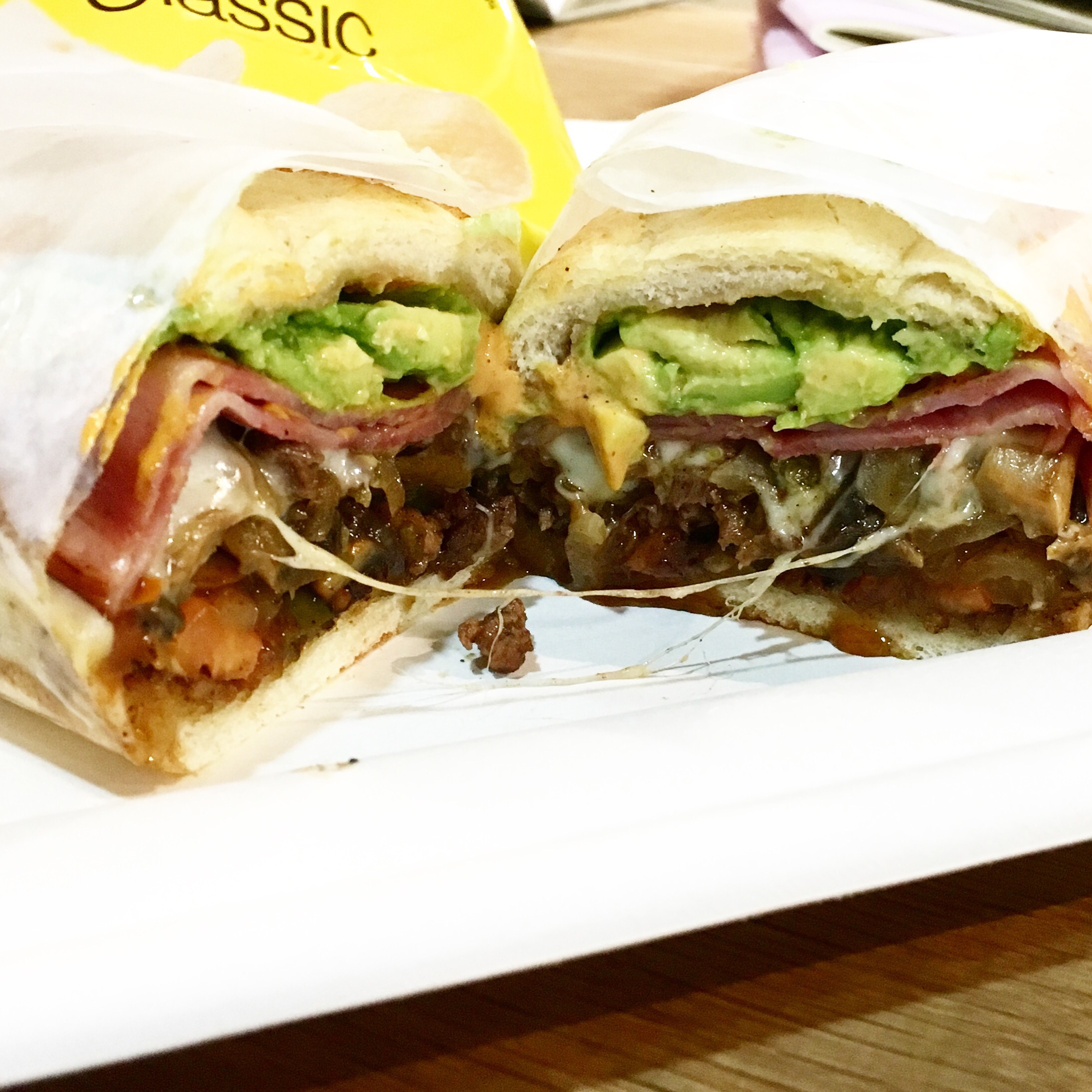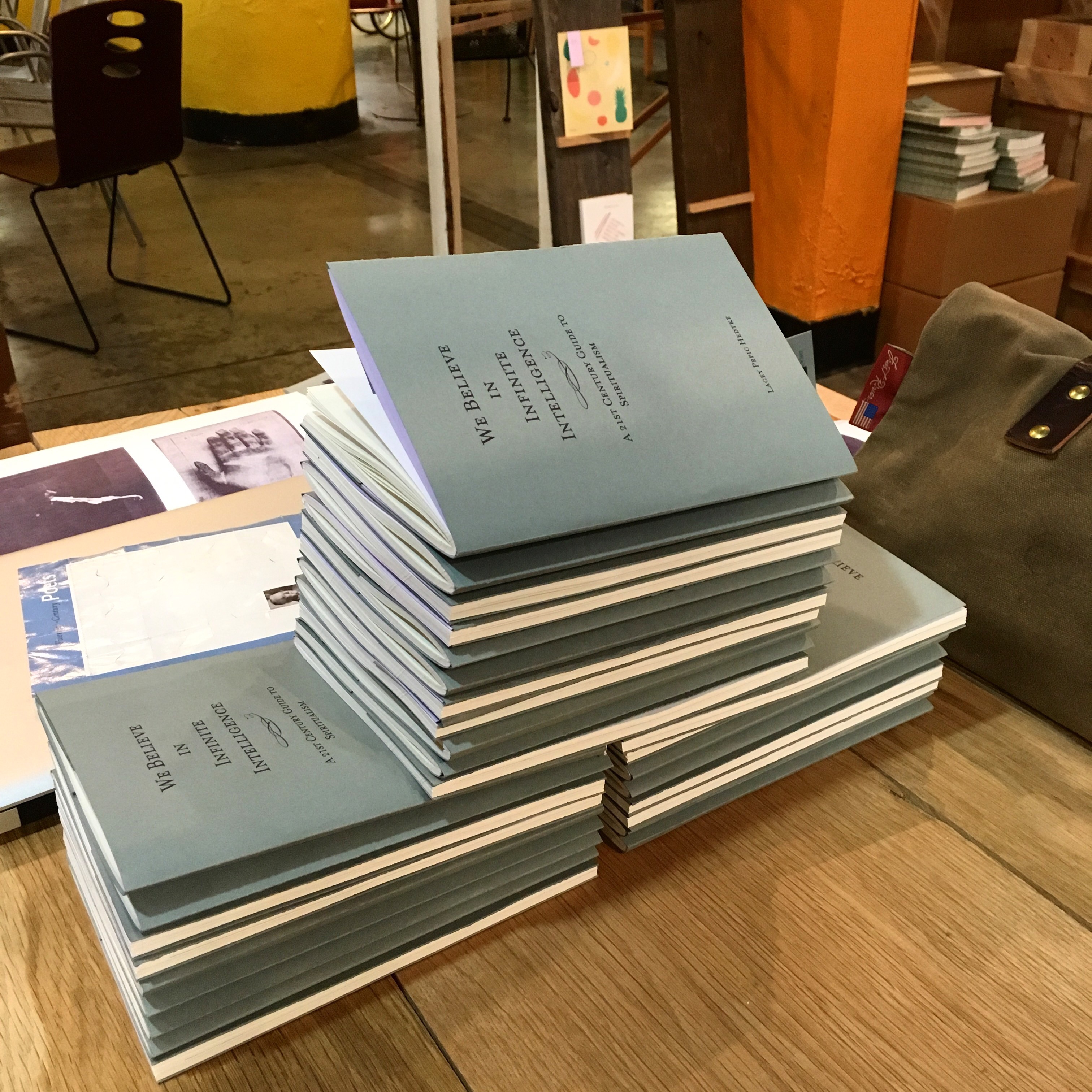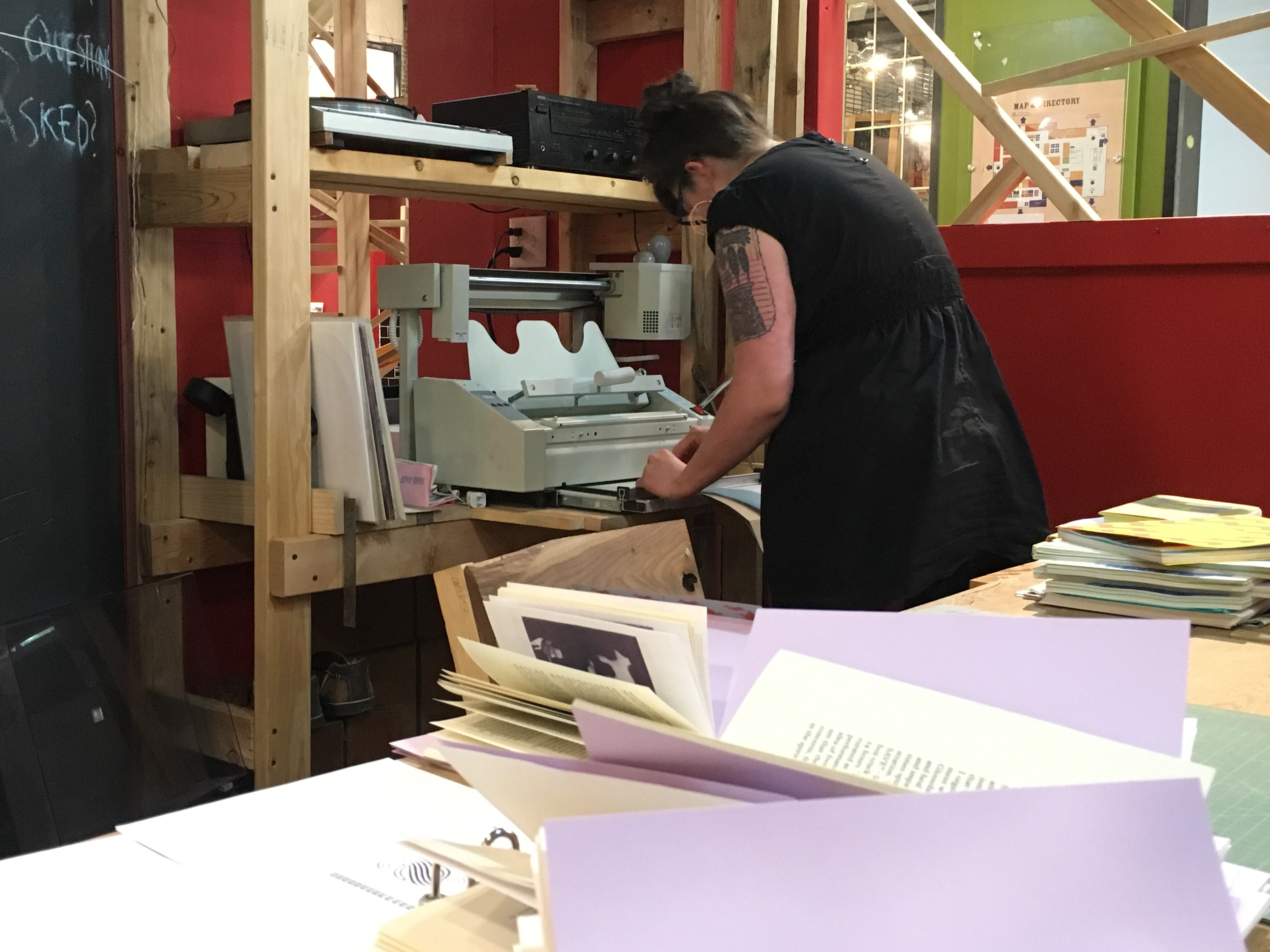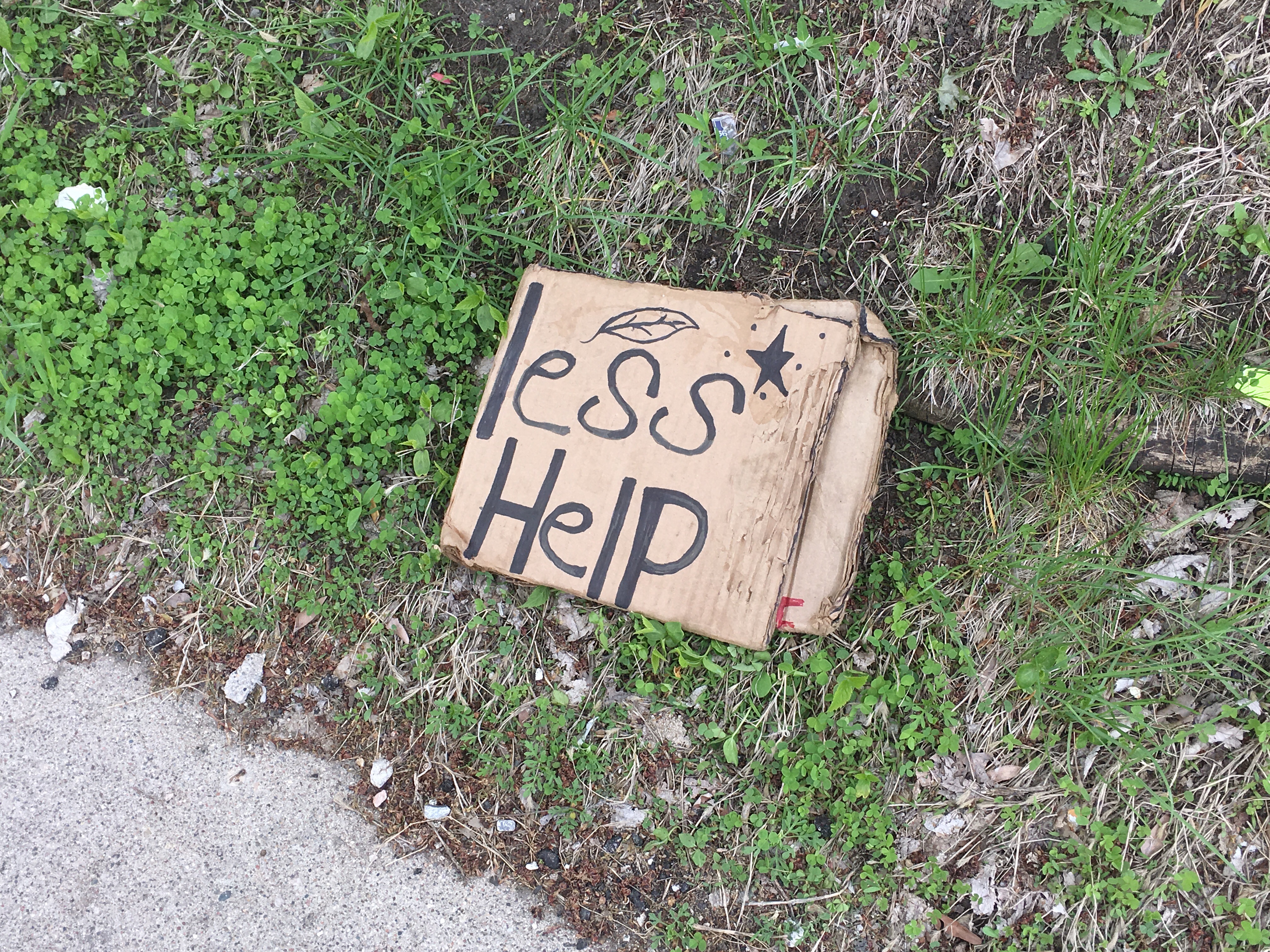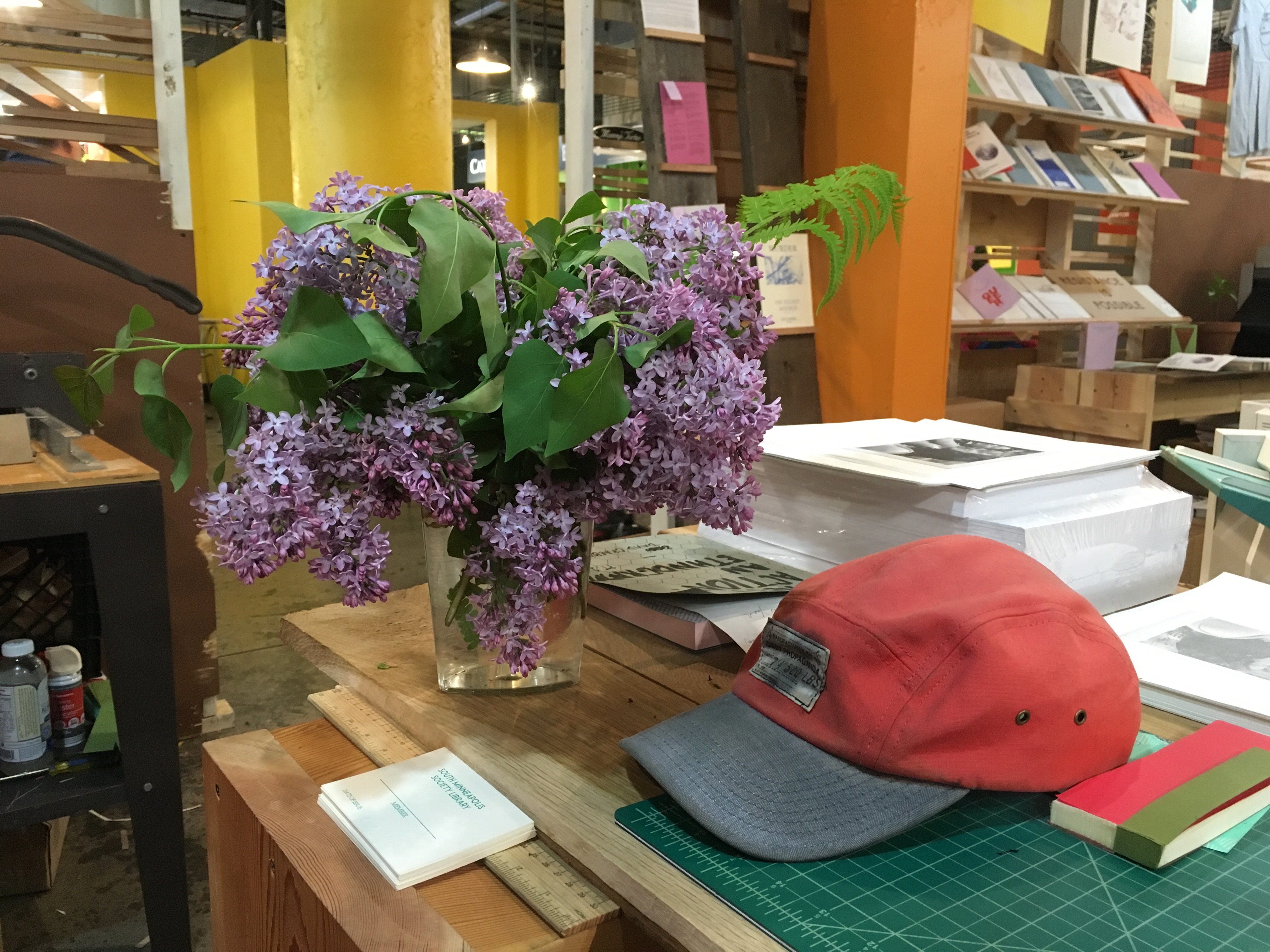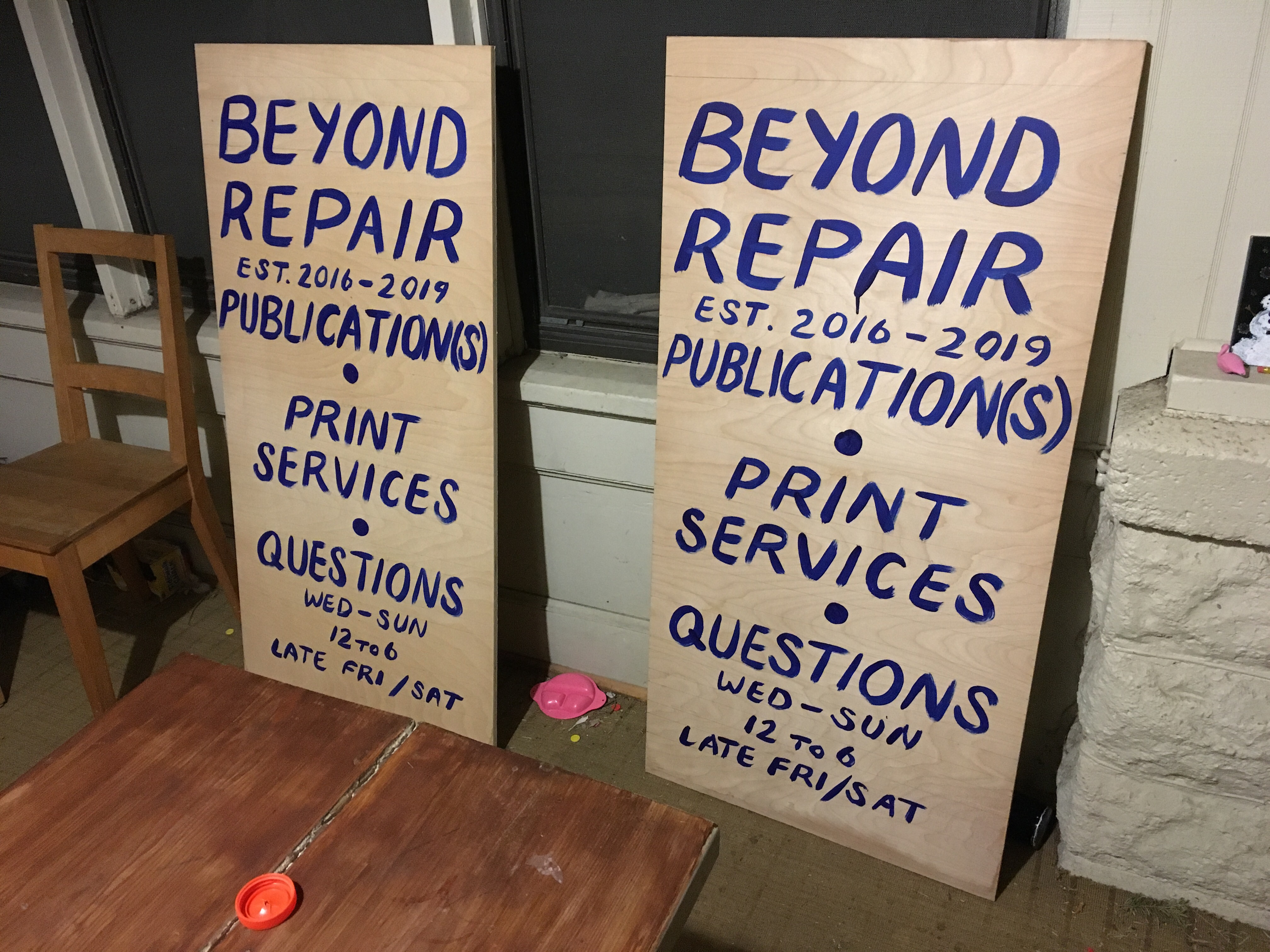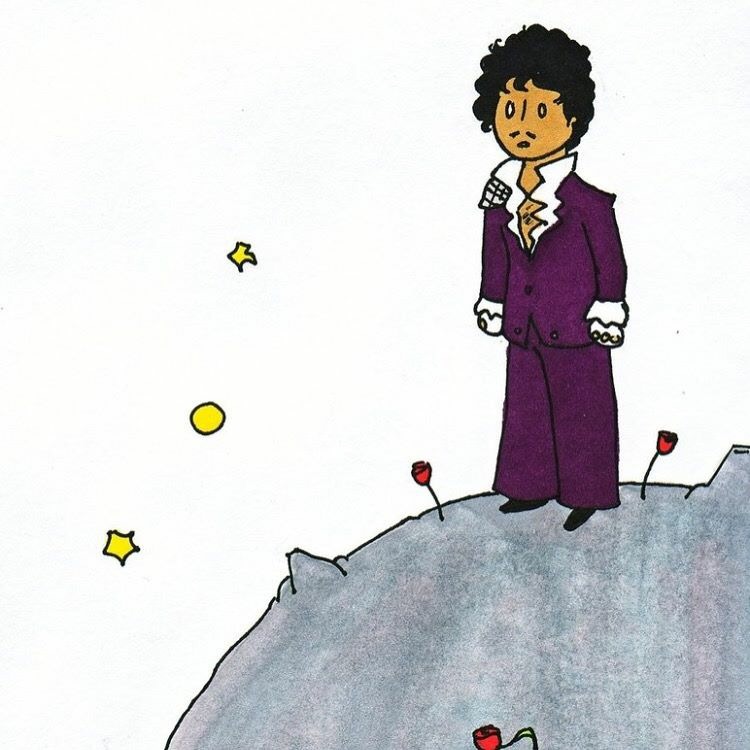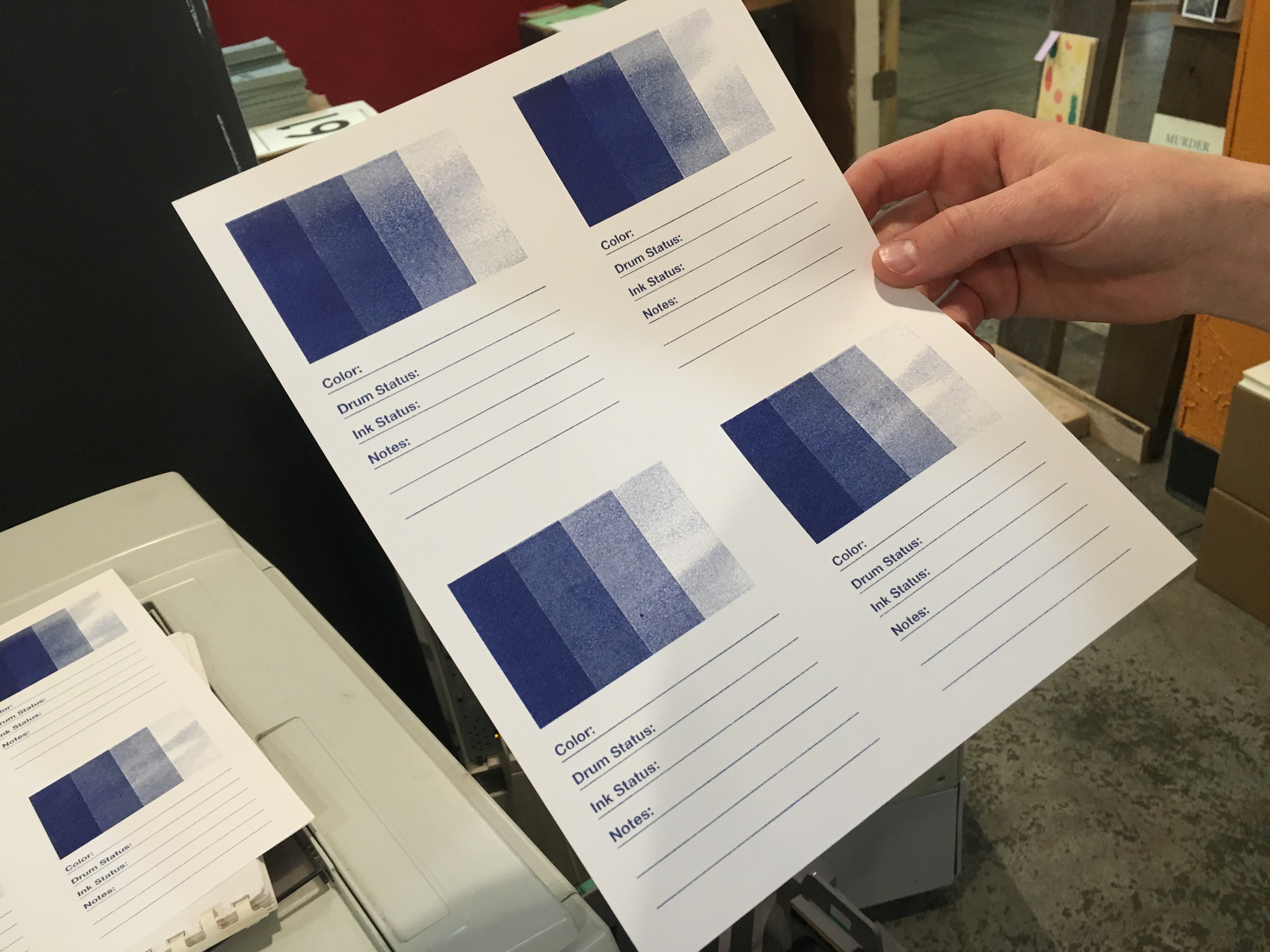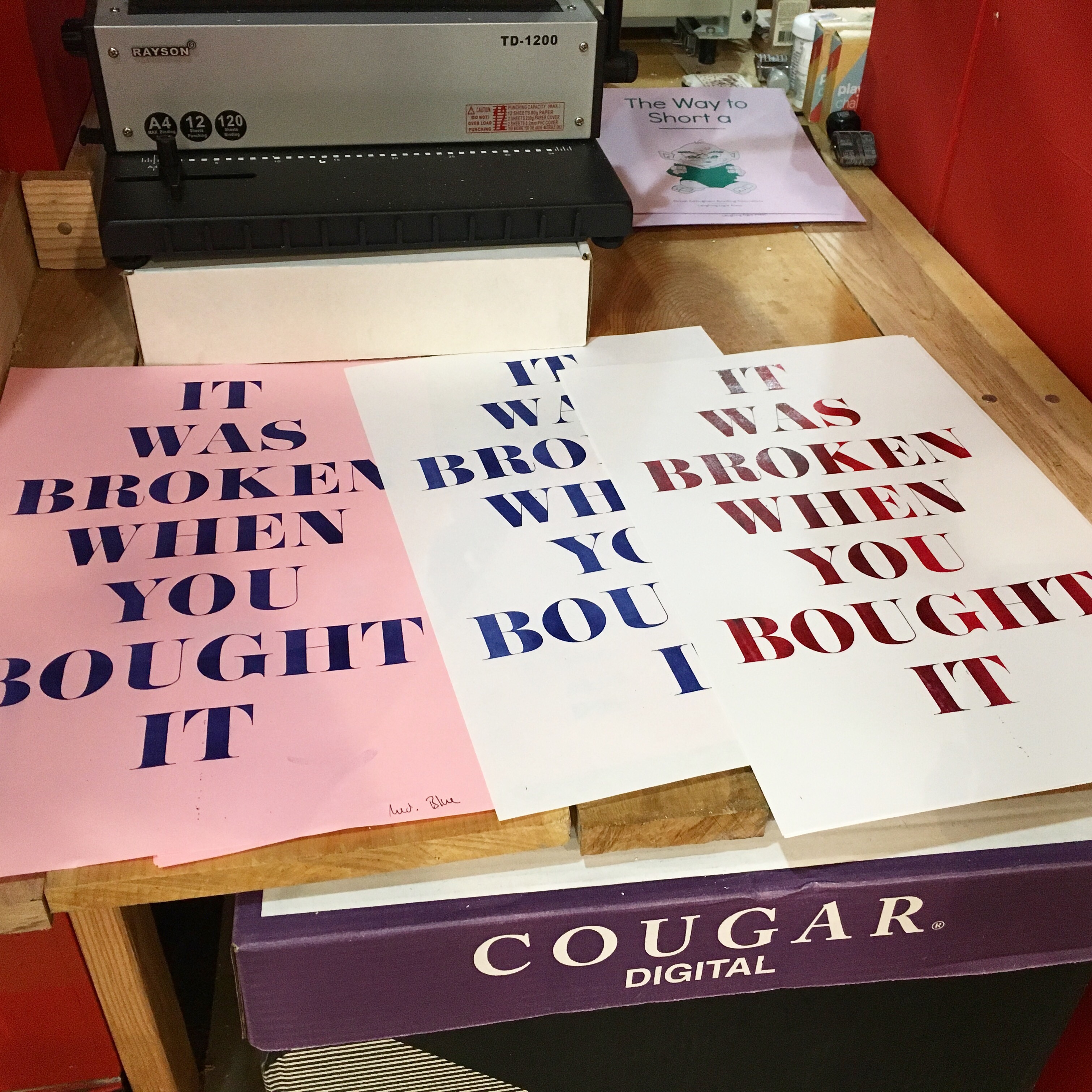More fellowship… Manny needed a menu layed out and printed. Later he brought Lacey and I torta’s!
Notebook
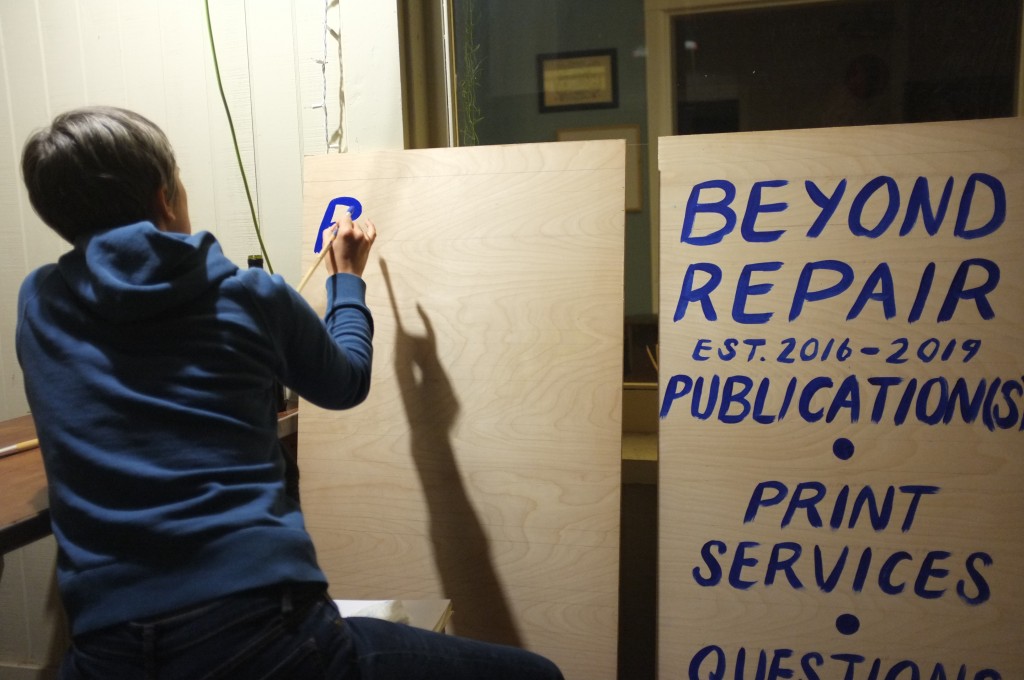
Our old friend, Helena Keeffe, came into town the other day to celebrate May Day and, simply, hang out. I first met Helena, and her then boyfriend, now husband, Joseph Del Pesco here in Minneapolis when Laura and I were visiting Laura’s family way back in 2001. At the time Joseph was the curator at the Soap Factory here in MPLS.
A few years later Helena and Joseph moved out to San Francisco so that he could start attending the curatorial grad program at California College of the Arts. Not long after that I started teaching at CCA in the newly formed graduate department for Social Practice. As I was still living in Portland I’d fly down for the times I taught and Joseph and Helena were always around, knocking on the window of our friend Jen Rhoads’s house – their neighbor who I’d introduced them too – asking if I wanted to go down the road to get a breakfast burrito at our favorite West Oakland taco truck. All said, we’ve always kept in touch, experienced one another’s ideas and projects in various states both at home and out in the world.
When Helena was in town it made me think, “Oh, can you paint the shops sign?” Of course she said yes. I knew I couldn’t do it as I hate looking at my hand-writing all day. So, I cooked dinner for her and Laura and the kids while Helena sketched out the measurements for the lettering. After the family went to bed we stayed up as Helena painted our new signs and we talked into the night.
I bring all of this up as it represents exactly the type of work and exchange that form around affectionate relationships – you don’t think of it as work, and you certainly don’t feel you are “giving something away” through the exchange. It’s people coming together to make one another’s lives happier, easier, and more appealing. When I say “affectionate” I mean both kindness and care and love, but I also mean “affect,” the way that all of those qualities change you when you allow people and the world to make you who you are, when you allow yourself to be changed through proximity to others.
All of this could seem slight, and in some ways – quite wonderfully – it is. When it gets to the point that it is reflexive and organic, mundanity can seem like symbiosis. When considered more deeply, even these small moments – making a sign for a friend, cooking for one another; a simple exchange of skills and values – can seem, and be, mutual aid as Kropotkin thought of it, or like Morris’s ideas of fellowship.
Sun, May. 15, 2016 ⁄ 4:30–6:00pm
Food Enough? – Soil Lab
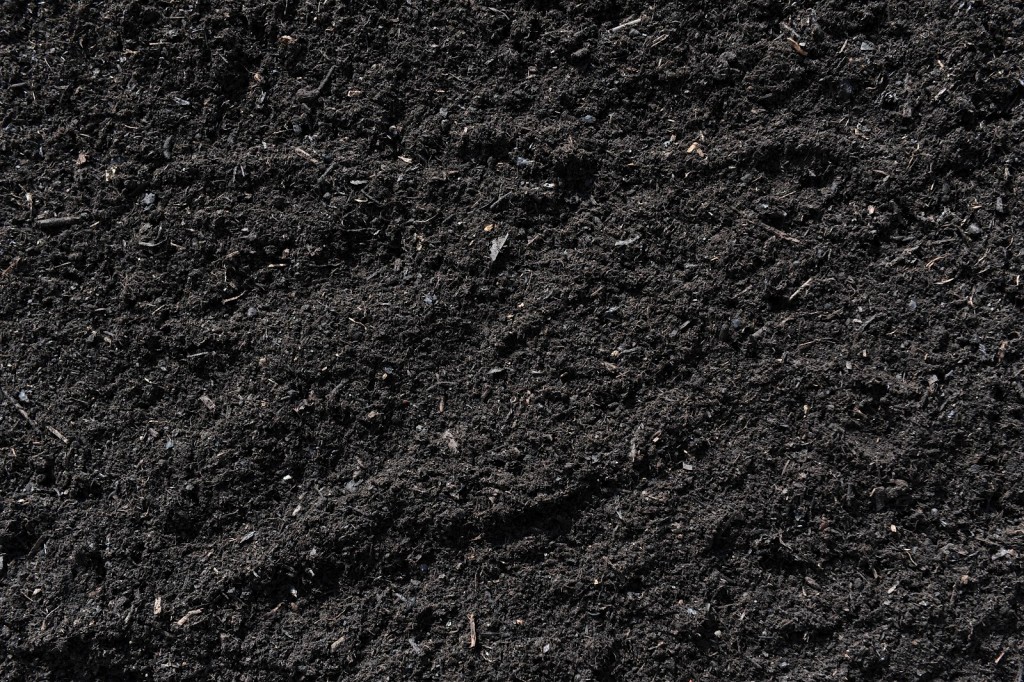
Since the beginning of the year a group of 9th Ward neighbors, environmental explorers, and urban farmers have been meeting together with the Twin Cities Agricultural Land Trust at the experimental publication site, Beyond Repair, in the Midtown Global Market. We’ve called our get-togethers Food Enough? We’ve gathered to discuss ideas and possibilities around truly equitable food land use in the Twin Cities and how the meeting of like minded yet disparate skills and knowledge can help put into place a landscape that is more abundant and fruitful than we’ve yet to imagine.
On May 15, at 4:30pm, we invite you to bring a handful of soil to explore, and talk with the conveners of the Soil Lab project and neighbors interested in our relationships with soil. What lives in the soil here? What can we learn from soil about ourselves and our surrounding systems, and therefore what can it teach us about equity and inequity, about our neighborhoods and societies?
We invite you to join us, add your thoughts, and broaden the ideas and experiences within Food Enough? towards future conversations and actions.
The Undercommons Reading Group will be gathering at the shop at 6pm on Saturday, our usual time for the mostpart. As is befitting, we need to talk about Prince, right?
We’ll be reading from Chapter 6, Fantasy in the Hold. Here’s a PDF for you to read if you’d like to join us, or simply as a lens to look through and ponder all things Prince out in the world.
I was lucky enough to grow up with Geoffrey Holder playing a significant role in my childhood. How could he not? Physically and personally he was so gigantic in life, especially to a child. Even after I’d moved away from NYC, I’d run into him walking the streets of his neighborhood and he’d remember me, calling out my name over the traffic and noise in SoHo near his loft. This advice to kids is advice for us all. We should never stop asking “what?” and “why?”
I recently read someone describe a neighborhood as “a place where someone feels some human sense of belonging, a human sense of being part of a society.” So, as my mind is on my neighborhood now, I can’t help but wonder how Geoffrey’s advice for children can be advice for us all. By asking “what?” and “why?” as often as possible of our own place and sense of place, how can we move towards that “sense of human belonging” that defines a neighborhood?
It cannot simply be achieved through policy – safer streets, access to good food, etc… Though certainly those considerations play a big part, we can’t arrive at them till we endeavor to ask one another “what?” and “why?” But how? How do we arrive at that space of questioning in a productive, inclusive way that begins outside of a space crisis? Prior to the notion of a “problem that needs to be fixed”? – Sam
“This is not to say that I deny membership in certain groups or communities. Not at all. But the ‘We’re here, too!’ agenda says nearly nothing to me about the real problems and conflicts in the world. The way those then-new orgs (especially in liberal Minnesota) attracted corporate ‘good works’-type funding–and pretty quickly professionalized their staffs–for me was a red flag. It was a good moment for Asian Americans looking for professional opportunities in the arts, but not for Asian American cultural workers whose political agendas overflowed the confines of identity assertion.” an excerpt from Anthony Romero and Dan S. Wang’s forthcoming conversation in print, The Social Practice That is Race
“Creating a new culture does not only mean one’s own individual “original” discoveries. It also, and most particularly, means the diffusion in a critical form of truths already discovered, their “socialization” as it were, and even making them the basis of vital action…” – Antonio Gramsci
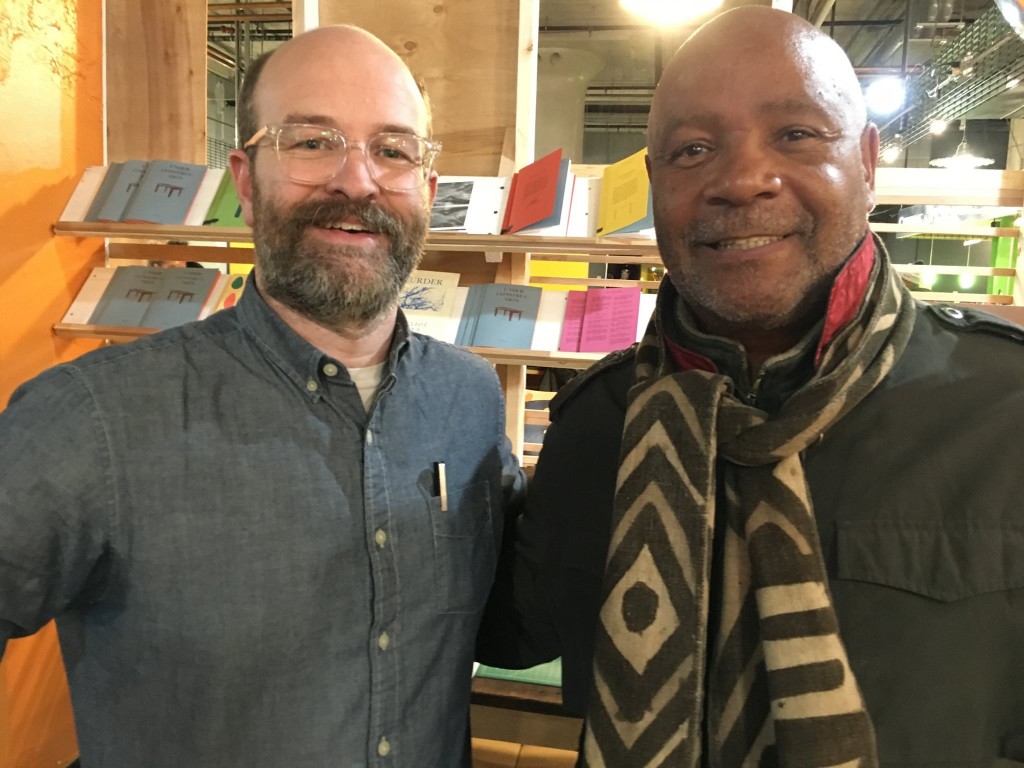
Lacey got our conversation with Emory Douglas down to 1′ and 0’s and we’re in the midst of cleaning it up. I cannot wait to get this out into the world! Here’s a quick taste…
Sam: So, in that way, you have the BPP doing something similar to, say the Wobblies at the turn of the century — of being on the street corner, being visible, saying, “look, here’s this thing and here’s the person attached to it. You could also be that person.”
Emory: Yeah, absolutely. We had a paper — 6:00 o’clock in the morning, people had assignments to go sell the papers. It was at the subway, the bus stations or wherever that may be.Sam: In that sense was the history and methods of, say, the Wobblies or the black press leading up to your work at the paper in your minds at the time?
Emory: Yes, yes. Because the context and the content was the connection.
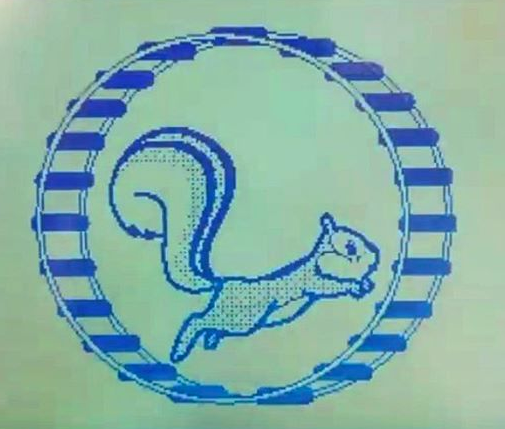
The new Riso we got at the shop uses this moving graphic when it needs you to wait before taking the drum out of the machine. We have determined it is a chipmunk.
We have decided to name the machine based on this graphic, and seeing that Riso is a Japanese company it seemed only right that we should use the Japanese name for Chipmunk.
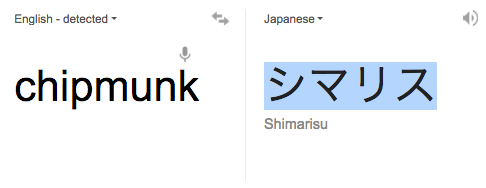
So, if you come into the shop and ask “what’s that machine over there,” we’ll answer, “Oh, that’s Shimarisu.”
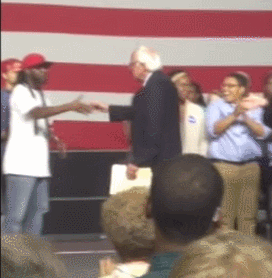
No joke, this is one of the most fascinating political moments in ages. The subtlety, and organic nature, of this moment speaks volumes.
